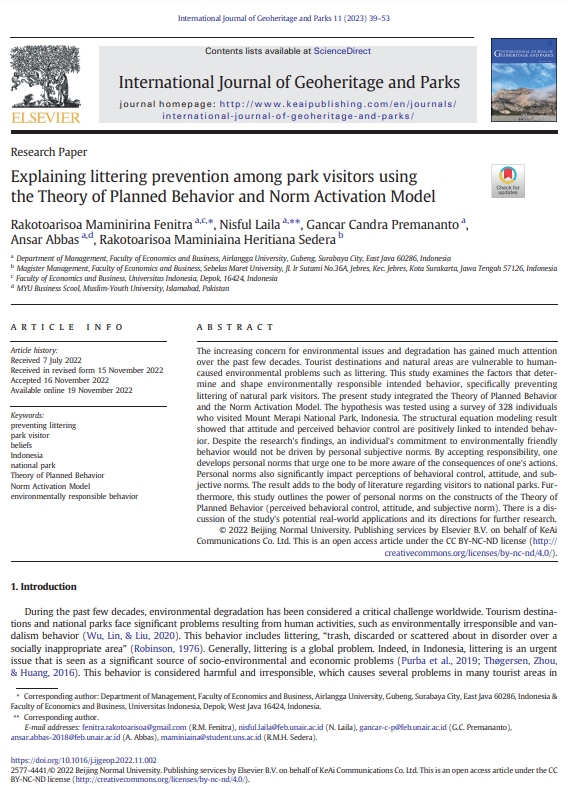AUTHOR
Rakotoarisoa Maminirina Fenitra
Nisful Laila
Gancar Candra Premananto
Ansar Abbas
Rakotoarisoa Maminiaina Heritiana Sedera
DESCRIPTION
The increasing concern for environmental issues and degradation has gained much attention over the past few decades. Tourist destinations and natural areas are vulnerable to human-caused environmental problems such as littering. This study examines the factors that determine and shape environmentally responsible intended behavior, specifically preventing littering of natural park visitors. The present study integrated the Theory of Planned Behavior and the Norm Activation Model. The hypothesis was tested using a survey of 328 individuals who visited Mount Merapi National Park, Indonesia. The structural equation modeling result showed that attitude and perceived behavior control are positively linked to intended behavior. Despite the research’s findings, an individual’s commitment to environmentally friendly behavior would not be driven by personal subjective norms. By accepting responsibility, one develops personal norms that urge one to be more aware of the consequences of one’s actions. Personal norms also significantly impact perceptions of behavioral control, attitude, and subjective norms. The result adds to the body of literature regarding visitors to national parks. Furthermore, this study outlines the power of personal norms on the constructs of the Theory of Planned Behavior (perceived behavioral control, attitude, and subjective norm). There is a discussion of the study’s potential real-world applications and its directions for further research.

